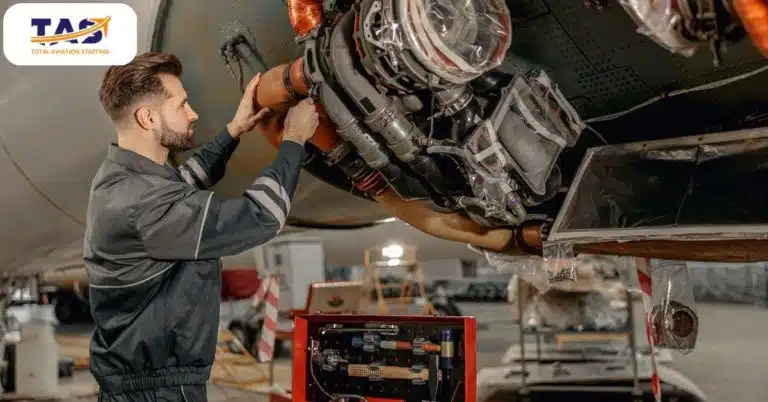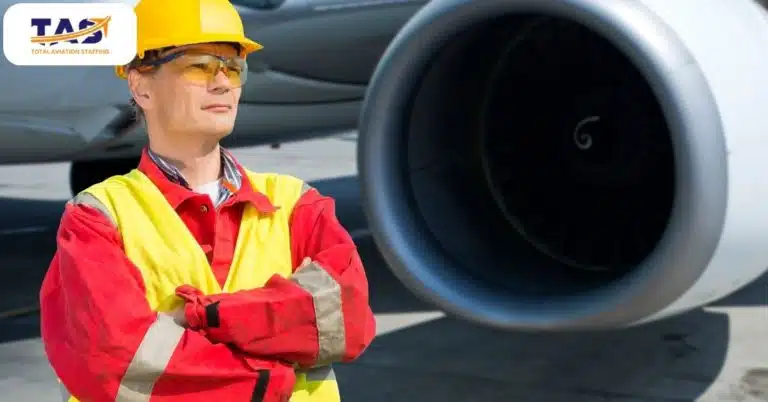An Overview of Structural Engineering Salaries in Aviation

Structural engineering is a highly specialized field in the aviation industry. It encompasses the design and construction of aircraft, as well as assessing and maintaining their structural integrity. Structural engineers have to be well-versed in all aspects of aeronautics, from understanding modern materials to predicting air loads. With such an important role comes great responsibility, and those working in this field are highly compensated.
In this blog post, we take a look at the average salary of structural engineers in aviation. We also explore the factors that might influence these salaries, such as location and experience. By the end of it, you will have a better understanding of how much money you can potentially make in aviation structural engineering. So read on to find out more!
Overview of Structural Engineering Salaries in the Aviation Industry
Structural engineering salaries in aviation typically vary depending on experience and qualifications, such as certifications. Professionals at the entry level of aviation structural engineering may expect a salary between $45,000 – $60, 000. With more experience and expertise, their salaries can exceed $90,000.
Large aviation firms that focus heavily on investments in research and development often offer higher salaries than some regional aviation operations centers. In addition to salary levels that are in line with national averages, aviation professionals may also benefit from incentive-based rewards like bonuses and stock options which can bring their total income significantly higher over other industries.
For those looking to enter the aviation industry as a structural engineer, there is a great deal of potential for rewarding and successful careers in this rapidly developing field.

Average Salary for Structural Engineers in Aviation
Structural engineers in aviation are highly sought-after professionals, due to aviation’s vital role in transportation and recreation. The average salary of a structural engineer working in aviation is $90,000 per year and can range from $67,000 to $122,000.
Depending on experience and specialization, factors such as skill level and location can also affect an engineer’s salary within aviation. In the industry, the highest earners often fill roles related to research and development or major projects. Structural engineering salaries within aviation generally require expertise in multiple engineering disciplines including materials science, mathematics, physics, and computing.
With many opportunities throughout aviation for structural engineers to secure a generous salary with job security, it is no wonder that these professionals are always in high demand.

Factors That Influence a Structural Engineer’s Salary in Aviation
As a highly specialized field, the salary of a structural engineer in aviation is heavily influenced by factors such as experience, qualifications, certifications, and location. It is important to note that salaries for structural engineers in aviation will vary widely depending on these factors. Here are five of the main influences that impact a structural engineer’s salary in aviation:
1. Experience
More experienced structural engineers in aviation can expect to earn a higher salary than their less-experienced counterparts. Professionals with several years of experience in the field and knowledge about specific materials, aircraft design, and aerodynamics have an edge over those just starting out.
2. Qualifications & Certifications
Structural engineers in aviation must have a deep understanding of mathematics and engineering principles. Having a degree in an engineering-related field and/or certifications will give the engineer an advantage when it comes to salary negotiations.
3. Location
Location can play a huge role in determining how much a structural engineer earns. Aviation professionals located in larger metropolitan areas, such as New York City or Los Angeles, tend to command higher salaries than their counterparts in smaller cities.
4. Skill Level
Structural engineers in aviation need to possess a wide range of technical skills and knowledge about the aeronautical sciences. Those with specialized skills and an understanding of aircraft materials may be able to command higher salaries.
5. Specialization
Structural engineers who specialize in a certain area, such as composites or advanced aircraft design, may be able to earn a higher salary than those with more general knowledge of the industry.
In addition to these factors, the size and structure of the employer can also influence how much a structural engineer earns in aviation. With the right combination of experience, qualifications, and certifications, engineers can secure higher salaries within the industry and bring their total income significantly higher over other industries. With many opportunities throughout aviation for structural engineers to secure a generous salary with job security, it is no wonder that these professionals are always in high demand.

Benefits and Perks Associated With Working as a Structural Engineer in Aviation
Working as a Structural Engineer in Aviation comes with many benefits and perks. From job security to generous salaries and discounts on plane tickets, there are many reasons to consider working in aviation engineering. Here are five of the top benefits and perks associated with working as a Structural Engineer in Aviation:
1. Job Security
Due to the specialized nature of structural engineering, professionals in the field tend to enjoy good job security. As long as they are up to date with their qualifications and certifications, they can expect to remain employed for many years.
2. High Salaries
Structural Engineers in Aviation can expect to receive generous salaries compared to other engineering fields. Factors such as experience, qualifications, and location can significantly impact a salary negotiation.
3. Travel Discounts
Many employers offer discounts on airline tickets or other travel-related services to those working in the industry. This means that structural engineers can enjoy discounted vacations and business trips with ease.
4. Opportunities to Learn
Structural engineers in aviation have the opportunity to learn from some of the best minds in the industry. Through mentorship and seminars, they can stay up to date with the latest technologies and developments in the field.
5. Collaboration With Other Professionals
Aviation professionals often work closely with other experts such as aeronautical engineers, aircraft designers, and pilots. This gives structural engineers the opportunity to learn from others in different professions while gaining valuable insights into the aviation industry.
These are just a few of the benefits and perks associated with working as a Structural Engineer in Aviation. With job security, high salaries, travel discounts, and other opportunities to learn, it is easy to see why many people are drawn to this profession.

Common Job Titles for Structural Engineers in the Aviation Industry
Structural engineers play an integral role in the aviation industry, providing expertise in aircraft design and construction. These professionals are highly specialized and need to have a deep understanding of aircraft materials and aeronautical sciences. Below are five common job titles for structural engineers in the aviation industry:
1. Aircraft Structural Engineer
Aircraft structural engineers are responsible for designing and constructing the frame of an aircraft. They must have a strong understanding of structural design principles, aerodynamics, and materials in order to create safe, efficient, and cost-effective aircraft.
2. Aircraft Maintenance Engineer
Aircraft maintenance engineers are responsible for inspecting and maintaining aircraft systems as well as making repairs and upgrades. They must have an in-depth knowledge of aircraft systems, materials, and components to ensure the aircraft is operating safely and efficiently.
3. Structural Analyst
Structural analysts are responsible for performing structural analysis on existing or potential aircraft designs. This requires a deep understanding of engineering principles such as mechanics, stress analysis, and finite element analysis.
4. Composite Structural Engineer
Composite structural engineers are responsible for the design and construction of composite materials used in aircraft components. They must understand the properties and characteristics of these materials in order to create a high-performance part that meets safety requirements.
5. Aircraft Design Engineer
Aircraft design engineers are responsible for developing and implementing aircraft designs. They must have a comprehensive understanding of both structural engineering principles as well as aerodynamics in order to create an efficient, safe, and cost-effective aircraft design.
Overall, working as a structural engineer in the aviation industry is a rewarding experience that can lead to job security, high wages, and a variety of travel opportunities. With the right qualifications and experience, structural engineers can take on challenging roles in aircraft design and construction while enjoying the various professional benefits that come along with this profession.

Qualifications Needed to Become a Structural Engineer in the Field of Aviation
Working as a Structural Engineer in the Aviation industry is an exciting and rewarding profession. It requires a combination of technical knowledge, creativity, and problem-solving skills to come up with innovative and efficient solutions that help keep aircraft safe, reliable, and cost-effective. In order to excel in this role, it is essential to have the right qualifications and experience. Here are five key qualifications needed to become a Structural Engineer in the field of Aviation:
1. Bachelor’s Degree in Aerospace Engineering
A Bachelor’s degree in Aerospace Engineering or a related field is essential for this role. This degree provides individuals with an understanding of aeronautical science, aircraft design and construction principles, and materials engineering.
2. Master’s Degree in Structural Engineering
A Master’s degree in Structural Engineering or a related field is beneficial for this role as it provides individuals with an understanding of complex structural analysis techniques such as finite element analysis (FEA).
3. Professional Certifications
It is important to have professional certifications such as Certified Aircraft Maintenance Engineer (CAME) or Certified Flight Instructor (CFI) in order to demonstrate knowledge and experience in the field.
4. Experience
A minimum of two years of experience in the aviation industry is required for this role. This should include hands-on experience with aircraft maintenance and structural engineering principles.
5. Communication Skills
The ability to communicate effectively is essential for this role as it involves working closely with other engineers, technicians, and pilots in order to ensure the safe operation of aircraft. Good communication skills also help individuals build relationships with colleagues and clients.
These are just a few of the qualifications and experience needed to become a successful Structural Engineer in the field of Aviation. With hard work, dedication, and the right qualifications, individuals can excel as Structural engineers in this fast-paced and rewarding industry.

Career Outlook for Structural Engineers Working Within the Airline Industry
Structural engineers within the aviation industry have an extremely important and rewarding role. These professionals play a key part in ensuring that aircraft and aviation components are designed and built safely and set standards, ensuring the aviation industry operates safely and efficiently.
These professionals enjoy competitive salaries which vary based on experience, qualifications, job roles, and certain aviation-related certifications acquired. Career growth in this dynamic field has seen consistent demand from both commercial airlines as well as cargo carriers.
Structural engineers within aviation will usually be offered project-related bonuses for aerospace engineering work on products such as aircraft structure design or the development of movable parts like landing gear mechanisms. With those kinds of incentives in place, it’s no surprise that structural engineering salaries within aviation are very attractive indeed.

In Conclusion
A career as a structural engineer in the aviation industry is both stimulating and rewarding. Structural engineers are essential to making sure that aircraft and aviation components are designed and built safely, offering valuable knowledge and expertise to help ensure safe air travel for all. Qualified professionals in this field can expect excellent salaries, project-related bonuses, and career growth opportunities. If you are passionate about aviation, have an advanced Engineering degree, and have a good understanding of aircraft materials and structures, then becoming a structural engineer in the aviation industry may be the perfect career for you.
